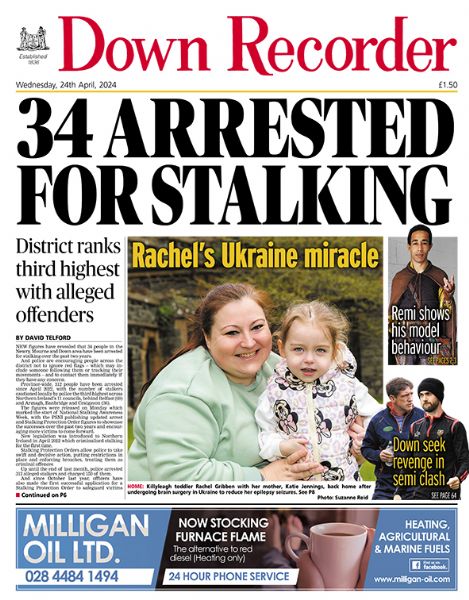Day Downe A&E rescued children
Day Downe A&E rescued children
26 February 2014
NINETEEN year-old Michael O’Neill says he tried his best not to fall on top of his friend when their school bus toppled over in a horrific car crash in Downpatrick early last year.
Michael was one of 12 students making their way to Knockevin Special School on board their yellow school bus on the morning of February 27 when a van crashed into the side of their vehicle, forcing it into a topple.
Although he suffered his own injuries in the crash, and has since been treated for severe whiplash, he says his first thought was that he should not fall on the boy beside him.
Recalling the “clap of thunder” when the collision happened, Michael said the bus crash was terrifying although his trauma was eased somewhat by the care received at the side of the road from a local householder and at the Downe Hospital’s accident and emergency unit where he was treated alongside his schoolfriends.
He said it frightens him to think of what could have happened if the children had not been treated at the local unit.
“Our school really wants to see the unit kept fully open,” he said. “I do not know what would have happened without it.
“We should not let the unit close. It is not only for children and young people, it is also for older people with bad hearts or diabetes. People who might be facing fatal incidents without the Downe.
“Then of course there are people like us who are in car accidents. What will happen to them if they are really badly injured and have to wait for an hour before they get to the hospital?”
Knockevin Special School’s vice-principal, Sara Liddell, confirmed that the school, which caters for 91 children, had depended on local A&E when the accident happened last year.
However, she said students and staff also depended on it regularly throughout the year due to the complex special needs of pupils.
“We have several incidents per year in which we bring children to the Downe and additional call-outs to ambulances,” she said.
“It gives us a sense of security to know the unit is not too far away.
“It is reassuring for staff and parents to know this is on our doorstep, particularly for children with complex needs or epilepsy.
“It is less traumatic for everybody not to have to travel too far afield when emergencies arise.”

